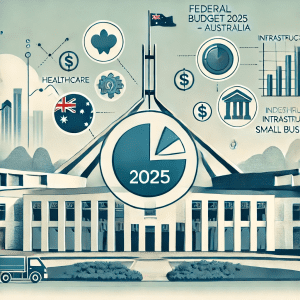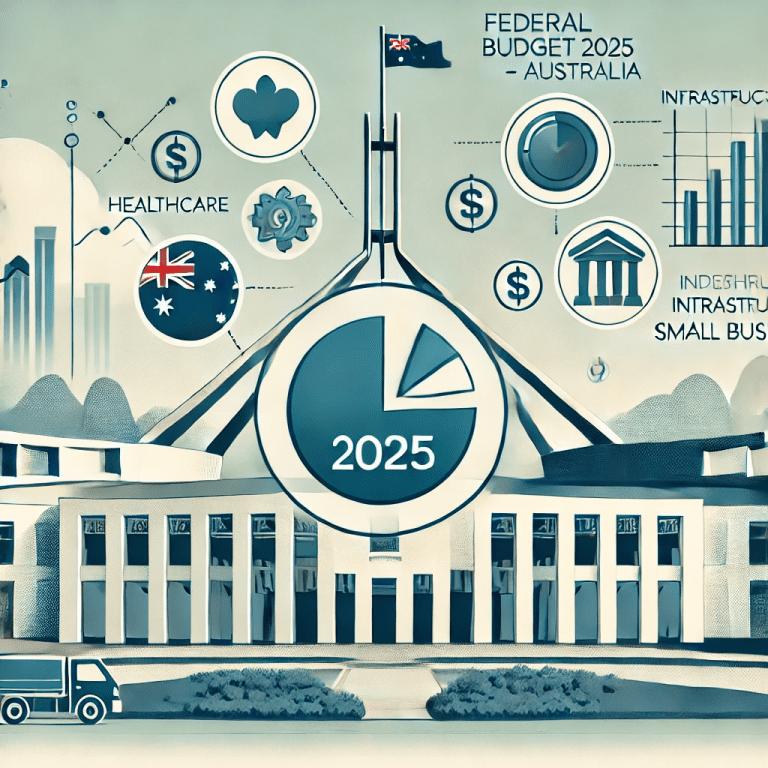The 2025–26 Federal Budget, delivered amid growing pressures on household finances and small businesses, offers meaningful relief in key areas—particularly housing, cost of living, tax, and incentives for manufacturing and small-to-medium enterprises (SMEs). For savvy individuals and businesses, the real opportunity lies not just in the direct support offered but in how to leverage this support—especially through strategic financing and partnerships.
Housing: More Access, Faster Builds
Housing was a major winner in this year’s budget. The Government reaffirmed its commitment to the National Housing Accord, which aims to deliver 1.2 million homes by 2029. While only about 45,000 homes have been completed so far, the focus has shifted toward speeding up supply through innovative methods.
A key part of this push is a $54 million investment in prefabricated and modular housing, including:
- $49.3 million to support state and territory growth in the modular sector.
- $4.7 million to develop a national certification process, reducing red tape and fast-tracking approvals for offsite construction.
Prefab and modular homes can significantly reduce build times and lower costs. However, financing these types of builds can be complex—especially for first-time buyers or developers unfamiliar with lending for non-traditional construction methods. This is where working with an experienced mortgage broker can be a crucial step. Brokers can source lenders comfortable with modular construction and structure finance to align with build milestones, ensuring cashflow remains steady during the offsite and onsite phases.
On the affordability front, the Help to Buy scheme was expanded, with income caps raised to $100,000 for individuals and $160,000 for couples or single parents. Under the shared equity model, the government can contribute up to 40% of the purchase price for new builds (or 30% for existing homes), with buyers able to enter the market with as little as a 2% deposit. This is a major leg-up for renters and young families trying to get on the property ladder.
Additionally, Commonwealth Rent Assistance will rise by 45%, offering welcome relief to nearly one million households facing steep rental costs.
Cost of Living: Energy Relief and Medicare Boost
The Government is also addressing cost-of-living pressures through targeted energy bill relief and healthcare investment:
- Every household will automatically receive an additional $150 energy rebate in the second half of 2025.
- One million small businesses will also benefit from this $150 rebate.
Health spending is increasing substantially, with $8.5 billion committed to strengthening Medicare, expanding bulk billing, and improving access to urgent care clinics. The Pharmaceutical Benefits Scheme (PBS) co-payment will drop to $25 per script from January 2026, further reducing everyday expenses.
Tax Cuts: More in Your Pocket
Perhaps the most visible change is the restructured income tax system, set to deliver relief to virtually all workers:
- From July 1, 2026, the tax rate for income between $18,201 and $45,000 will fall from 16% to 15%.
- This will drop further to 14% in 2027, doubling the benefit.
- An average household earning $70,000–$100,000 stands to save around $1,500 annually.
For many Australians, this could go straight into savings, debt reduction—or contribute toward a deposit on a first home.
SME Incentives: Manufacturing, Defence, and Innovation
Small businesses will see targeted support that encourages investment, productivity, and industry alignment. Beyond the $150 energy rebate for SMEs, the real game-changers are in the grant and incentive programs available to innovative and strategic businesses.
A standout is the Defence Industry Development Grant Program, designed to support Australian businesses aiming to integrate into defence supply chains. This includes:
- Up to $1 million in grants, covering up to 50% of eligible costs for purchasing plant, equipment, or technology.
- Additional streams include training, export development, and security upgrades, with grants ranging from $100,000 to $250,000.
For manufacturers and suppliers able to align with defence priorities—whether through precision engineering, advanced materials, or critical components—this presents an enormous opportunity. Even if a business had to finance the remaining 50%, they could potentially claim depreciation or instant asset write-offs, making it a strategic tax-saving move.
Pairing these grants with structured business finance—again, ideally with help from a specialist broker—can help businesses front the costs while protecting working capital.
Other initiatives include:
- The Industry Growth Program, offering grants of $50,000 to $5 million for SMEs developing scalable, high-impact innovations.
- Energy efficiency grants of up to $25,000 for SMEs looking to replace aging, inefficient systems.
Making It Work: Finance as a Force Multiplier
While the budget delivers direct support, the real opportunity lies in how it’s used. Many of the incentives—whether for prefab housing, defence manufacturing, or SME innovation—require upfront capital. This is where tailored finance solutions become essential.
A good broker can:
- Structure modular housing finance aligned with build stages.
- Help SMEs secure funding to meet co-contribution requirements for grants.
- Source competitive loans or asset finance for plant and equipment tied to government incentives.
- Help individuals and families leverage shared equity and tax cuts into mortgage approvals.
Final Thought
The 2025–26 Budget isn’t just a set of policies—it’s a toolbox. From first-home buyers to high-growth businesses, from modular builders to defence manufacturers, the tools are there. But the key lies in how they’re used. With the right advice and smart finance, Australians have a real opportunity to turn these budget measures into lasting financial wins.
To discuss anything in this article or for mortgage or finance queries, please call our helpful team at Australian Mortgage Corporation on (07) 5456 2928.




